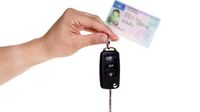The European Union is proposing measures to redefine road safety standards, especially concerning senior drivers. As the elderly population continues to grow, so does the number of older individuals who continue to drive, raising concerns about their safety and that of other road users. In response, the European Commission is exploring regulations that would require elderly people to renew their driver's licenses more frequently and undergo more rigorous health assessments.
According to the proposals, individuals over 70 years old would be obligated to renew their driver's licenses every five years, a significant change from the current intervals of 10 or 15 years that many member states enforce. This initiative aims to address the physiological changes that accompany aging, which can affect essential driving skills, including vision, hearing, and quick reflexes needed in critical moments.
Another key aspect of the proposal involves mandatory medical check-ups for seniors wishing to retain their driver's licenses. These assessments would include tests for vision, hearing, and motor skills, all crucial for determining a person's fitness to drive safely. Depending on the outcomes of these evaluations, seniors could either be granted permission to continue driving or face restrictions, including recommendations for additional training.
This initiative has sparked a debate across Europe. Supporters argue that these measures could significantly reduce road accidents and enable seniors to maintain an active lifestyle safely. They believe that regular health assessments would ensure that older drivers are fit to operate vehicles, thereby enhancing road safety for everyone.
However, critics raise concerns about potential age discrimination and the financial burden that these new regulations could impose on elderly individuals. Many seniors may struggle to afford the necessary health check-ups, leading to worries about their ability to remain mobile and independent. The proposed regulations would be applicable across all EU member states, but each country would have the flexibility to adjust the requirements according to its demographic and economic conditions.
For instance, nations with an older population, such as Germany or Italy, might adopt these regulations more swiftly, while countries with a younger demographic structure may delay their implementation. The European Union recognizes the need for tailored approaches to address the unique challenges presented by aging populations.
As the discussion surrounding the "senior driver's license" continues, it is clear that the EU is committed to enhancing road safety while considering the implications for its aging citizens. The proposed changes reflect a broader understanding of the need to adapt to demographic shifts and ensure that all road users can navigate safely.
In summary, the EU's initiative to introduce more stringent regulations for senior drivers is a response to the growing elderly population and the associated risks on the roads. By requiring more frequent renewals and health assessments, the EU aims to balance the independence of senior drivers with the need for safety on the roads. As consultations progress, the final outcome of these proposals will likely have significant implications for both road safety and the mobility of older adults across Europe.





